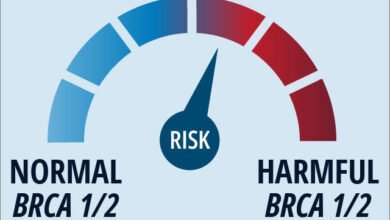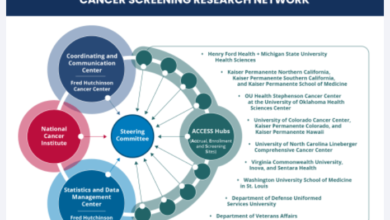Q&A With M. Celeste Simon, PhD, FAACR, on Advances in Kidney Cancer Research

Although not as common as breast, prostate, or lung cancer, kidney cancer is one of the most frequently diagnosed cancers in the U.S. According to federal estimates, 81,800 people will be diagnosed with it, and more than 14,800 will die of the disease in the U.S. in 2023.
Patients diagnosed at early stages, when kidney cancer is still localized, can be treated with surgery and have a favorable five-year survival, but those with metastatic disease, who represent approximately one third of the cases, experience poor outcomes.
Over the past decade, significant progress has been made in systemic therapy for kidney cancer, also known as renal cell cancer. Immune checkpoint inhibitors and angiogenesis inhibitors (a type of cancer therapy that limits the blood supply to the tumor) have become standard of care for patients with advanced or metastatic disease.
In 2021, the U.S. Food and Drug Administration (FDA) approved belzutifan (Welireg) for the treatment of an inherited form of renal cell carcinoma associated with Von Hippel-Lindau (VHL) disease. In these patients, germline mutations in the VHL gene cause unrestrained activity of the hypoxia-inducible factor-2 alpha (HIF-2α) transcription factor, which normally functions as a sensor of low oxygen, leading to constitutive expression of target genes that drive proliferation, invasion, and angiogenesis. Belzutifan is a specific inhibitor of HIF-2α and was shown to shrink VHL-associated renal cell cancers and other VHL-associated tumors. Studies are evaluating belzutifan in metastatic kidney cancer and in non-familial forms that are not related to VHL disease, as VHL inactivation is also commonly found in sporadic renal cell carcinoma.
The inaugural AACR Special Conference on Advances In Kidney Cancer Research, to be held on June 24-27, will bring together basic, translational, and clinical researchers, as well as clinicians, to discuss the latest advances, the challenges, and the future of the field.
We asked M. Celeste Simon, PhD, FAACR, one of the co-chairs of the conference, to provide a preview of the exciting topics that will be presented. Simon is the Arthur H. Rubenstein, MBBCh, Professor and the scientific director of the Abramson Family Cancer Research Institute at the University of Pennsylvania.
The other meeting co-chairs are Othon Iliopoulos, MD, Clinical Director of the von Hippel-Lindau Disease/Familial Renal Cell Cancer Program at Massachusetts General Hospital Cancer Center and associate professor of medicine at Harvard Medical School; Cheryl Lyn Walker, PhD, director of the Center for Precision Environmental Health and professor in the departments of Molecular and Cellular Biology, Medicine, and Molecular and Human Genetics at Baylor College of Medicine; and Qing Zhang, PhD, associate professor in the Department of Pathology at UT Southwestern Medical Center.
What prompted this conference, and what is its scope?
This meeting was conceived with the goal of bringing together investigators from the entire spectrum of research on kidney cancer, from basic scientists to clinicians. We have an impressive list of invited speakers, including thought leaders in the field and influential scientists in the areas of basic, translational, and clinical research in kidney cancer. We also have quite a few short talks selected from abstracts submitted by young investigators.
Special conferences provide an ideal platform for scientists to really connect and talk with everyone. I think it is going to be a terrific meeting; I am really looking forward to it.
What are some of the highlights of the program, and how does it reflect the breadth of research on kidney cancer?
There will be sessions dedicated to several different aspects, including developing new model systems to study kidney cancer; how metabolism shapes the disease and may provide new possibilities for therapeutic intervention; clinical trials and how to best develop them; targeting epigenetics; and the state of the art in diagnosing and treating rare forms of kidney cancer.
Our very first talk will be delivered by Peter Ratcliffe, a Nobel laureate of 2019, who helped elucidate the VHL/HIF pathway that has led to the development of the HIF-2α inhibitor, and we will hear a lot about that during the meeting. I think it is a real blend of various topics in the field, and we will dedicate plenty of time to talking about the future directions and what this meeting might look like in two years.
How has kidney cancer treatment changed in the past decade?
We could deem kidney cancer as one of the success stories of combination immunotherapy plus antiangiogenic therapy or combination of multiple immunotherapy approaches. However, a minority of the patients respond to these treatments, so there is still so much room for improvement.
I think it is very exciting that a HIF-2α inhibitor has received FDA approval for patients with germline VHL mutations. This drug is the first of its kind and is a game changer for treating this population of patients. When I was a graduate student, I was told that it would be impossible to drug a dominant transcription factor like HIF-2α.
What areas of kidney cancer research are most exciting?
We have long appreciated that kidney cancer is a metabolic disorder. Everything that has to do with the progression of disease has a strong metabolic footprint to it. There has been skepticism that we can ever successfully use metabolic approaches to treat cancer, but I think we have now demonstrated that it can be done.
At the meeting, we will discuss how we can combine metabolic approaches with some of the therapies that are currently offered to patients. Personally, I think it is going to be very exciting to see how far we can take the HIF-2α inhibitor and the other metabolic interventions that we are attempting.
Based on our work on metabolic pathways in kidney cancer, my team has identified two new targets that might be potentially relevant to all patients, regardless of their diverse genetic backgrounds. We think we have some interesting new directions that we will share at the meeting.
Another very important area of inquiry is how we can improve on immunotherapy.
What is the role of immunotherapy in kidney cancer?
The use of immunotherapy in kidney cancer has provided valuable information on the biomarkers of response. Kidney cancer is responsive to immune checkpoint blockade despite having a relatively low tumor mutational burden, challenging the notion that cancers with the highest mutational burden, like melanoma, are more likely to be responsive to immunotherapy. In addition, researchers have been investigating whether we can use the expression of the PD-1 or PD-L1 markers as indicators of response. Data on kidney cancer suggests that this is not necessarily the case.
Kidney cancer is one of the first cancers for which we have combined antiangiogenic therapy with checkpoint blockade to enhance efficacy. Do these therapies synergize, or is the benefit due to an additive effect? I hope to hear more about this at the meeting.
We are also making progress in learning how to best administer immunotherapy—whether it is best to give it to patients before or after surgery, as a first-line therapy or as a subsequent approach.
We will hopefully find answers to these questions soon from the results of a large number of clinical trials that are ongoing.
What are some of the challenges and next steps in this field?
I think the biggest challenge is disease recurrence. Many patients who initially experience a response to therapy eventually develop resistance, so we are working to define alternate strategies to benefit all patients, regardless of the etiology of their disease.
There is a wide array of treatment options available, but that can be somewhat overwhelming until we understand how to best match patients with the most beneficial treatment options. One important future direction is to identify new ways to stratify patients and line them up for the therapies that are most likely to benefit them.
Another important area of research is to devise better treatment options for patients with metastatic disease, which is obviously the most lethal.
Simon is a former member of AACR’s Board of Directors and the recipient of the 2023 AACR-G.H.A. Clowes Award for Outstanding Basic Cancer Research.
The AACR Special Conference on Advances in Kidney Cancer Research will be held June 24-27 in Austin, Texas. Click here to register. #AACRkidney23
Source link
#Celeste #Simon #PhD #FAACR #Advances #Kidney #Cancer #Research



